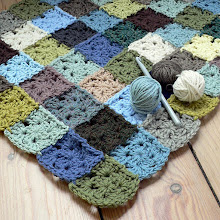And why, I always wonder, do journalists generally describe imaginative or slightly different people as 'quirky'? Definitions of quirky include 'eccentric' and 'peculiar'. Often what I do is labelled this way just because it is different. Is it really eccentric to consider things carefully, write well and thoughtfully?
Basically, giving something the 'slow' label - be it food, work, lifestyle or blogs - seems to be synonymous with focussing wholly on the job in hand, doing it to the best of our ability, and doing it with pride and pleasure. Trying not to do too much, valuing what we have, and not spreading ourselves too thinly. That is, exactly how many of us have been getting on with things for years.
I know some might see it as cynical, but I can't help recalling the words 'emperor' and 'new clothes'.
Am I alone with these thoughts?

Here's something that wasn't written quickly. Angel at St Lawrence's Church, Ludlow.
With thanks to Book Girl for her excellent post on this subject which got me thinking.









7 comments:
I've known you for some considerable time, and you have always written well, brilliantly well. Only your art work rivals your writing (or vice versa, of course!)
No way would I consider you peculiar or eccentric, or even quirky. But then, maybe you get some of your talents from your parents ;-)
What annoys me about the Slow Movement is how money, and a lot of money is being made by pointing out the bleeding obvious.
I also hate labels – call it slow and suddenly it becomes trendy, like you say it’s what a lot of us have been doing all our lives.
As you say, many of us have been quietly minding our own business and getting on with things like this all our lives - I do think that it tends to be people who have lived their lives at the other extreme who 'discover' slow living and make a big thing of it - and as Gigi said, a lot of money. I think the sensible ones amongst us will ignore it all and carry on as normal.
Thanks for these musings and the nyt-link. No, you´re certainly not alone with it. I felt a strong inclination for the "gentle art of blogging" from post 1 (what a nice term! I´ve had my doubts occasionally whether my view of blogging as an art form might be considered "quirky" - especially in Germany, where the "just spill it all out"-way of blogging seems to hold a vast majority...)
Good luck with your online shop!
I am very much in sympathy with the slow movement, although I agree with you and with pg that it often states the obvious! Perhaps it needs to be stated as so many people are clearly living lives which do not make them happy. I love your definition too.
Thanks for your kind comments on mine. It is lovely to feel you have touched a chord.
Thank you for your thoughts everyone. I guess you have hit the nail on the head Lynn - what often irritates me about things is the making of money, the production of trite copy, the perpetuation, if you like, of our society's insatiable urge for MORE of everything. But Elizabeth, I like your expression of gentle acceptance towards other people's journeys very much. We all have a lot to learn.
Perhaps the journos writing about this arent old enough to remember how things were before the 'Now' Society took over?
Or, and I favour this idea more, because I am self confessed cynic; they seek a new trend (albiet simply something most of us of a certain age are familiar with) to make their next buck from. It sounds so much better than 'Traditional' or 'Old Fashioned' or 'Hand crafted' because in reality, that's what it is, a call to a gentler time past, where the artisan was valued, and craft revered?
Post a Comment